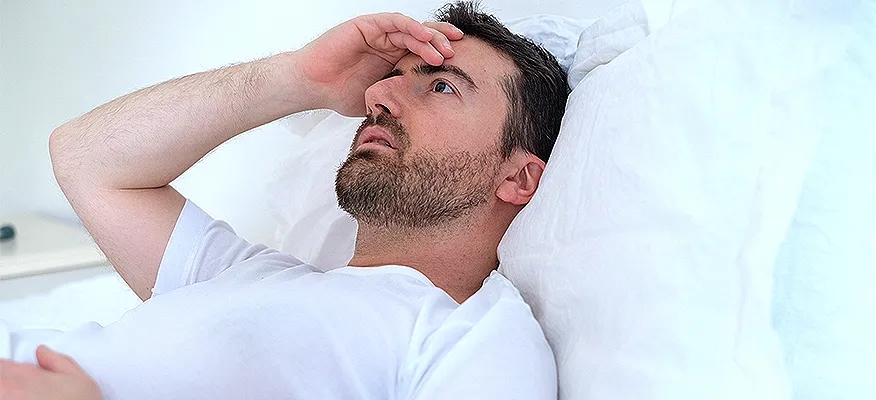How Lack of Sleep Impacts Your Blood Pressure?
- By Dr. Lynda Odoh - Anikwe
- 20 Jan 2025

Key takeaways
- Inadequate sleep can lead to elevated blood pressure levels thereby increasing the risk for hypertension.
- Both short-term and long-term sleep deprivation could contribute to cardiovascular diseases.
- Recommended sleep duration is crucial but quality of sleep also plays a significant role in maintaining healthy BP levels.
- Chronic sleep deprivation has been linked to weight gain, diabetes, and mental health disorders, all of which can indirectly contribute to high blood pressure.
- Implementing good sleep hygiene practices and managing sleep disorders effectively can help combat sleep deprivation and its negative effects on blood pressure.
Rate our article
We'd love to know!
- 0
- 0
- 0
- 0
- Good Sleep for Good Health | NIH News in Health
- Sleep deprivation - Better Health Channel
- How Sleep Deprivation Affects Your Heart - Sleep Foundation
- How a Lack of Sleep Contributes to High Blood Pressure - Cleveland Clinic
- Effect of Sleep Disturbances on Blood Pressure
- Sleep Duration and Hypertension: Epidemiological Evidence and Underlying Mechanisms - PMC
- Irregular sleep schedule linked to high blood pressure - American Heart Association
- Insomnia and Heart Health - American Heart Association
- Chronic insomnia disorder as risk factor for stroke: a systematic review - PMC
Related articles
See AllFrequently asked questions
Get the information you need.
Oversleeping, just like the lack of sleep, can cause high blood pressure among other health issues. It's not uncommon for people who sleep too much to experience poor sleep quality due to disrupted sleep cycles. This can lead to headaches, similar to a sleep deprivation headache, and impact your heart rate during sleep. Thus, reaping the benefits of sleeping early also involves ensuring you don't oversleep.
Overdosing on sleeping pills can have severe side effects. It can result in prolonged drowsiness, confusion, hallucinations, seizures, and even coma in extreme cases. Moreover, these pills can only offer a temporary solution for managing sleep disorders and do not address the root cause of the problem such as poor sleep hygiene or mental health issues.
Yes, your sleeping position can affect your blood pressure. Studies have found that sleeping on your left side or back can help reduce high diastolic blood pressure. However, if you're facing trouble with low diastolic blood pressure, it's advised to consult a healthcare professional to understand what causes low diastolic blood pressure in your case.
Reducing your diastolic blood pressure involves making some lifestyle modifications like following a balanced diet, exercising regularly, avoiding tobacco and limiting alcohol consumption. Good sleep hygiene is also essential in maintaining optimum blood pressure levels. Regularly going to bed and waking up at the same time every day helps regulate your body's internal clock and improve the quality of your sleep.
Low diastolic blood pressure can be caused by a variety of factors including heart problems, endocrine problems, dehydration, blood loss or certain medications. It's important to consult a healthcare professional if you consistently have a low diastolic reading to identify the underlying cause and start necessary treatment. Remember, just like lack of sleep can cause high blood pressure, other lifestyle factors can also significantly impact your blood pressure levels.
How was the experience with article?
We'd love to know!